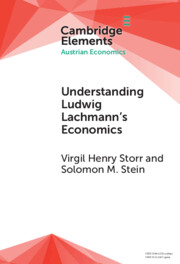Refine search
Actions for selected content:
1 results

Understanding Ludwig Lachmann's Economics
-
- Published online:
- 25 December 2023
- Print publication:
- 01 February 2024
-
- Element
- Export citation
